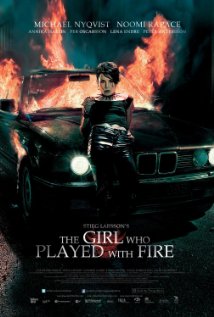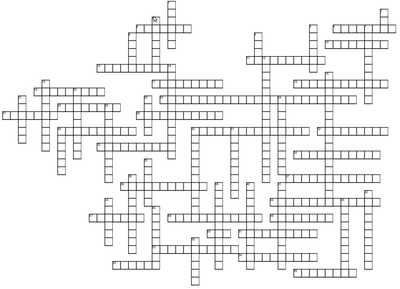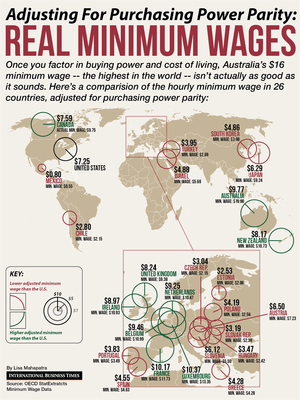Book Review
The Crusade for Justice: Chicano Militancy and the
Governments War on Dissent
By Ernesto B. Vigil
University of
Wisconsin Press 1999
450 pages
This book is about the Chican@ organization the Crusade for Justice,
which was founded by Rudolfo “Corky” Gonzalez, and the repression they
endured. Corky was born on 18 June 1928 to parents who were farm
workers. His father was a migrant from Mexico and fought in Pancho
Villa’s army during the Mexican Revolution, while his mother was a
Chicana from Colorado. From Boxer, to bourgeois Democrat, to Chican@
militant, Corky developed in the urban setting of Denver.
The Crusade for Justice was formally founded in 1966, in response to
murders of Chican@s by pigs. It was an organization which sought
self-determination for Chican@s and hoped to serve as a model for the
Chican@ nation.
The federal government began surveilling Corky soon after he officially
broke with the bourgeois politics of the Democratic party. He broke with
them because he saw that they were not really working in the interests
of the Raza, rather they served Empire. He really got on the FBI radar
in 1966 when the FBI files note an anti-war speech he made in Denver,
Colorado. In this speech Corky said:
“Who reaps the profits? If in essence we are sharing in this prosperity
by our own personal good life, then we are prospering at the expense of
the blood and bones of fellow human beings. If our own economic gain
must be earned by such a grisly trade, then we are truly a very sick
society … prolongment of the war means isolation of the most powerful
military country in the world, frowned on and hated by millions of
people on all the continents of this planet.”(p. 28)
Here he clearly understands that the imperialist war on Vietnam was
wrong and also saw that those in the First World who benefited via
better living standards and privileges were benefitting off of the
“blood and bones” of people around the world. So early on we see that
Corky was much different than say a Cesar Chavez because he not only
sought better treatment for Chican@s but for folks around the world.
I found the portions of the book concerning FBI surveillance very
educational. The author obtained FBI reports on Corky via Freedom of
Information Act requests, and learned that at one point the Special
Agent in Charge (SAC) sent a report to J. Edgar Hoover stating that
protesters were released after protesting the death of a New Afrikan who
was killed for using a segregated facility, and after walking out of the
courtroom the SAC notes of Corky and others: “They all joined hands and
sang, ‘we shall overcome’.”
For the SAC to feel the need to report to Hoover something like this
highlights just what kind of beast that we are up against. The unity
between oppressed nations is an extreme threat to the safety and
security of white supremacy. Calls for unity or a united front between
the internal semi-colonies will always threaten our oppressor because
this unity challenges the Settler state even before a single rifle is
raised. Together we make the occupiers tremble!
Perhaps one of the significant actions that “Crusade for Justice” did
was, besides mobilizing the Chican@ nation, it held the 1969 Chicano
Youth Liberation conference, which brought Chican@s together for the
first time like no other. It was here that the concept of “Aztlán” and
Chican@ independence was brought to the Raza like never before. And
although this was guiding the Chican@ movement onto the anti-imperialist
road and was a revolutionary event, the leaders - Corky and the
Crusaders - were not communists and this was their shortcoming. As good
as their efforts were and as much as the Chican@ nation needed them at
the time, they did suffer some erroneous political line.
At the conference a preamble and three-point plan was adopted. The
preamble, also known as “El Plan Espiritual de Aztlán” was steeped in
patriarchal tone with talk about “brotherhood” of Chicanos and our
“Forefathers” in Aztlán. What’s more, as Vigil notes, there is no talk
of the First Nations who exist within many parts of the land base we
call Aztlán. The preamble was written by the poet Alurista and thus the
preamble was a little poetic.
The program was written by Corky and reflected some idealism. He speaks
of nationalism, self-determination, independence and total liberation
from the oppression and exploitation, but not of socialism or communism.
From my studies I know that there were Chican@ communists involved in
the Chican@ movement, but they were a minority. For most, the Chican@
struggle was simply about breaking from the “Gringo” i.e., national
oppression, but liberation divorced from socialist relations of
production leads back to capitalism and thus imperialism. We have
learned from our foremothers and forefathers and understand that even
within the Chican@ Nation there are class contradictions which will
continue to be a problem post-liberation, and will not be resolved
without dissecting capitalism completely. Without identifying this
truth, one is left with the empty shell of bourgeois nationalism and
continued oppression only under new management.
The fact that even organizations like Crusade, which did not even seek
socialism, but simply to be free from oppression, faced state repression
and intense FBI surveillance is shocking. Here was a group who we find
out in this book was surveilled by FBI, military intelligence, police
intelligence, CIA and others, and they were not even attempting to
install socialism. This teaches us all the extent of the settler in
protecting its Empire.
Vigil describes how in the late 1960s and early ’70s many middle class
people of all nationalities were protesting for integration of schools,
but the Chican@ movement did not care for integrating schools nor did
they struggle for this.
“School busing to achieve integration was of little interest to Denver’s
Chicano activists, who had other priorities; bilingual education,
community empowerment, and curriculum reform. For them, integration was
misguided ‘Liberalism,’ a mere cosmetic reform premised on the
assumption that minorities could be well educated only when Whites were
physically present.”(p. 117)
Here Vigil is on point that Chican@s should not focus on integration,
not in schools and not with Amerikkka. Our goals are to liberate our
people, not to sleep in the oppressor’s house. The only integration we
want is Aztlán’s future economy being integrated with socialist
relations of production.
I really enjoyed reading about the Escuela Tlatelolco which was a
“Freedom school.” Chican@ youth learned “Spanish, history, music,
folkloric dancing, geography, printing, sculpturing, and contemporary
world and national affairs.”(p. 161) Vigil explained: “Three professors
were recruited from Monterey, Nuevo Leon, Mexico, to teach advanced
Spanish, Mexican history, economics, political science and
mathematics.”(p.162)
Independent institutions such as liberation schools are important for us
to decolonize the minds of our youth, but this decolonization must come
wrapped in communist ideology – which the Escuela Tlatelolco wasn’t. Our
contemporary liberation schools will clearly show our youth that only a
socialist Aztlán will begin the process of real nation building and is
the only way to truly liberate the Chican@ nation. We want schools today
that are operating outside U.S. influence and which display what real
people’s power means.
There was an interesting section on a Chican@ prisoners self-help group
which formed in 1969 at Colorado State Penitentiary. This political
group was called the Latin American Development Society (LADS). The LADS
made it possible for Chican@ community organizations to go into prison
and helped to create a bridge of cooperation where Chican@s being
released from prison would be funneled into the outside Chican@ activist
community where they would find post-prison services such as employment,
counseling, etc. Corky Gonzalez was able to go into the prison and speak
at the first LADS meeting, so the Chican@ movement was injected into
this prison political group.(p. 180-181)
Like prison groups today LADS focused on combatting oppression and
providing education for the imprisoned Chican@, and LADS also left us
with some good examples to learn from. They created several serve the
people programs in the pinta, for one they created a committee that
worked with new prisoners, what we may call “first termers” here in
pintas in Califas. This was important because a new prisoner or “fish”
may be easy prey for some predator in prison. In this way youngsters
were given revolutionary clecha once they entered the pinta by LADS
“O.G.’s”. LADS was comprised of prison vets who were politicized. Within
LADS were many sub-committees such as the Committee to Assist Young
People (CAYP), as well as a security committee called the
Zapatistas.(p. 182) The LADS were anti-dope and combatted drug use or
sales in the pinta. They were not trying to poison the imprisoned Raza,
rather they were trying to build the Raza.
Criminal acts and lumpen-on-lumpen crime declined once the LADS became
active and they were able to establish a Concilio de Unidad (Unity
Council) which contained LADS and outside activists who collaborated
with one another. This I think is needed in today’s pintas where prison
revolutionaries via United Struggle from Within (USW) can link up with
MIM(Prisons) and ensure released prisoners can be funneled into the
revolutionary movement out in society. But prisoners need to step up and
prepare ourselves and other prisoners to continue their political work
on the outside.
The shortcomings of LADS was it was an above ground (prison approved)
organization, so although the prison officials allowed them to have
meetings etc., Vigil states that prison officials abolished the LADS
once they gained influenced. My question is since when do we allow our
oppressor to abolish our efforts to organize or serve the people? At the
same time state repression is real and very deadly, this probably
explains why many of today’s imprisoned Chican@ revolutionary groups
operate underground.
Something else I found interesting was something Corky Gonzalez came up
with and that was the Congreso de Aztlán (Aztlán Congress). As Vigil
explains, “The Congress de Aztlán was a conceptual congress of the
‘Chicano nation,’ of ‘Aztlán.’ It would be similar to a
government-in-exile in as much as it claimed legitimacy in opposition to
the colonizing power that claimed Mexicans as subjects. In this case,
however, the congreso was not in exile but operating in occupied
territory.”(p. 189)
The Congreso de Aztlán was never able to be activated because of inner
contradictions within the Chican@ movement. The main political vehicle
was the la Raza Unida Party (RUP). RUP made an attempt at establishing
dual power, where Raza sought community control of community politics
and community services, but this “dual power” was in reality an attempt
to use the oppressors’ politics to liberate the people, which of course
could never really be successful. This approach is a result of those
Social Democrats who fall for ballot box “revolution.”
Vigil states about the RUP, “The party was a national party in name only
and never had a clear central ideology other than the anti-establishment
nationalism prevalent in the movement.”(p. 191) I would disagree, the
RUP did have an ideology but for the most part it was bourgeois
ideology. When the Congreso de Aztlán is finally activated in the future
it will have a strong ideology. Chican@s have learned a lot since
decades past, we know that like Mao said, without a revolutionary theory
there is no revolutionary party. The ideology of our Congreso de Aztlán
will be communist in nature.
RUP also failed to have a national platform, newspaper or command
structure.(p. 192). Their strategy seemed to be to knock on doors and
tell Raza to vote Brown. Had RUP enacted a clear revolutionary program
and national officers, etc., I believe they would have been neutralized
by the U.$. government’s COINTELPRO tactics a lot faster than they were,
because they attempted to organize above ground in opposition to
Amerikka.
Some of the leaders in the Chican@ movement were more revolutionary than
others. Reis Tijerina who fought the land grant struggle in New Mexico,
for example, got out of prison and made a statement which Vigil quotes:
“I don’t dig the political philosophy of the Third World. We are here.
We have what it takes. I don’t go for outside ideologies.”(p. 192) His
First Worldism shines forth, and had the U.S. miraculously given back
the land grants in New Mexico we may never had heard from Tijerina
again. Tijerina went on to describe our youth of believing in “imported
ideologies” that “serve the Anglo,” yet it was his clinging to
capitalism which served the imperialists. Here Tijerina displays
dogmatism, where facts don’t matter in relation to ones
narrow-mindedness. Corky responded to Tijerina stating he wanted no
“alignment with political prostitutes” in a letter that was published in
the Crusade newspaper El Gallo. Corky saw that Tijerina’s efforts
were opportunistic, relying on familial ownership of land. Corky saw the
struggle being to liberate the land for all of the Chican@ nation, not
simply for land-owning families, and thus Corky was more correct.
The Chican@ movement during these times also produced some underground
revolutionary groups. Some of these groups were the Chicano Liberation
Front in El Paso, the Frente de Liberación Chicano of Northern
California, and the Continental Revolutionary Army in Colorado. These
groups were reportedly involved in bombings within U.S. borders and
other operations aimed at U.S. imperialism. Vigil notes how the
Continental Revolutionary Army bombed the Texas home of James M.
Somerville, who newspapers described as the CIA chief of the Denver
field office. As Vigil points out, it was the first physical attack on
the CIA on U.S. soil and it was done by Chican@s. It’s important to note
that in the 1970s Denver was the bombing capital of the U.S.(p. 295)
Prisoners were also forming revolutionary groups at this time, such as
Chicanos Organizados Rebeldes de Aztlán (Organized Rebel Chicanos of
Aztlán - CORA). CORA put out a newspaper called AZTLAN from
prison which was distributed out in society. Another organization was
the Movimiento Organizado Socalistas Chicano de Aztlán (MOSCA). Both of
these organizations were created in the Federal prison system and some
of their miembros left the pinta to remain politically active on the
outside. Every generation of prisoners needs their own revolutionary
Chican@ organizations. Our oppression continues and so should our
resistance. CORA’s example of creating a prisoner newspaper is something
contemporary prisoners have not been able to pull off, but the example
remains that the independent press can be created from within prisons.
The imprisoned Chican@ struggle is nothing new, our people have been
rising up in these colonial pintas for decades, and so we have a lot of
history to learn from if we can access it.
The content of Crusade that dealt with the developments of
Chican@ independent institutions was powerful and subjectively pleasing,
but the real meat of this book was in learning how state repression –
primarily by the FBI – was aimed at the Crusade for Justice and the
Chican@ movement of the ’60s and ’70s. There are many books on
COINTELPRO and other political repression, but few focus on it aimed at
the Chican@ movement like Crusade does. Not only were field
reports generated for local police intelligence units on Crusade
activity, but these reports were shared with many others like military
intelligence, FBI, CIA, etc. For as little as making a speech critiquing
capitalism or Amerikkka, an FBI file was started on a persyn. Attending
an event protesting pig brutality was also grounds for investigation. I
recommend this book because it helped me understand the extent of
political repression by U.S. imperialism. Even journalists were having
an FBI file created on them for making a critical statement or article
on police or government.
I see the need now more than ever to rebuild the Chican@ nation and
mobilize the people on the only path to justice and real equality. Our
complete decolonization will manifest in an independent Socialist
People’s Republic of Aztlán.
¡Aztlán Libre!











